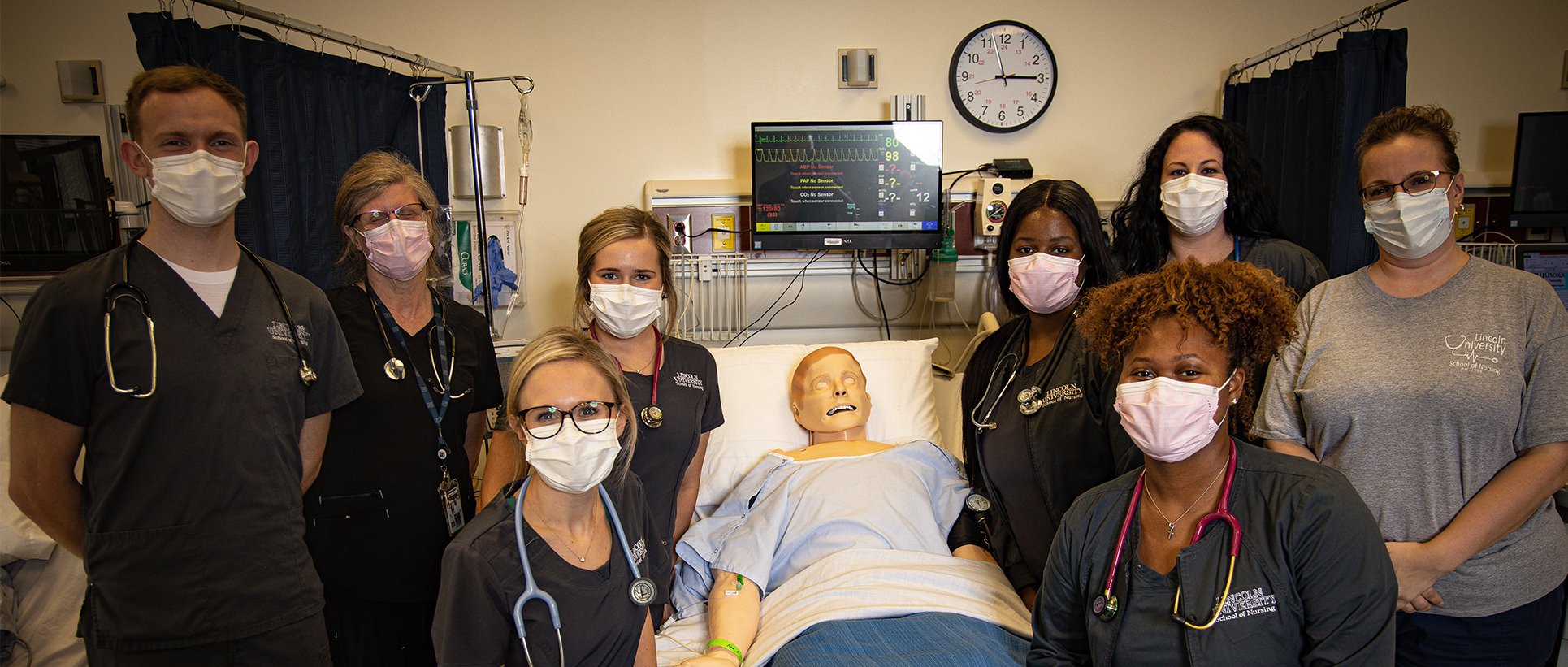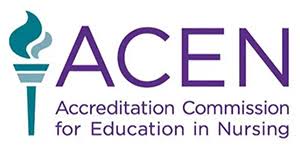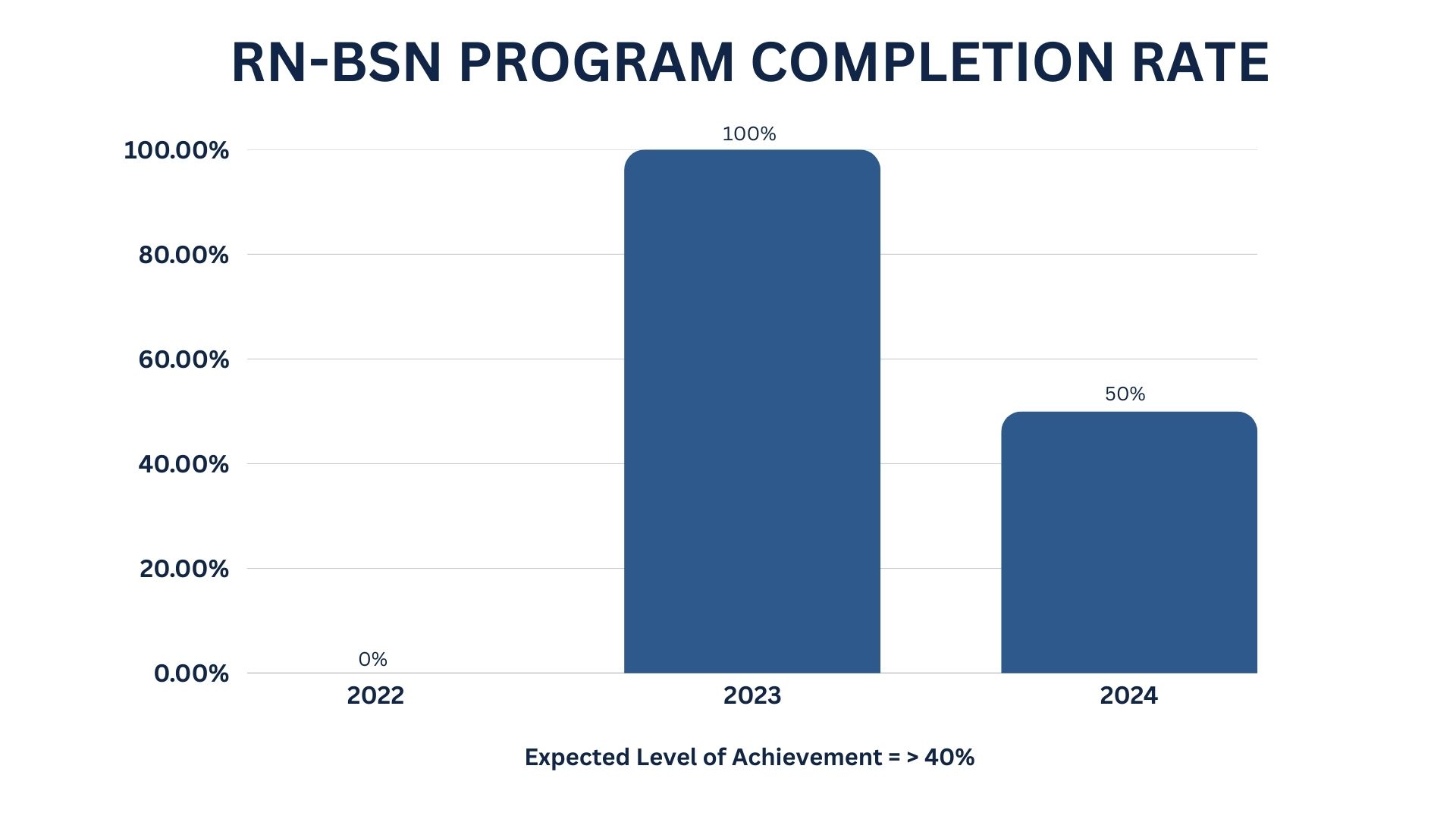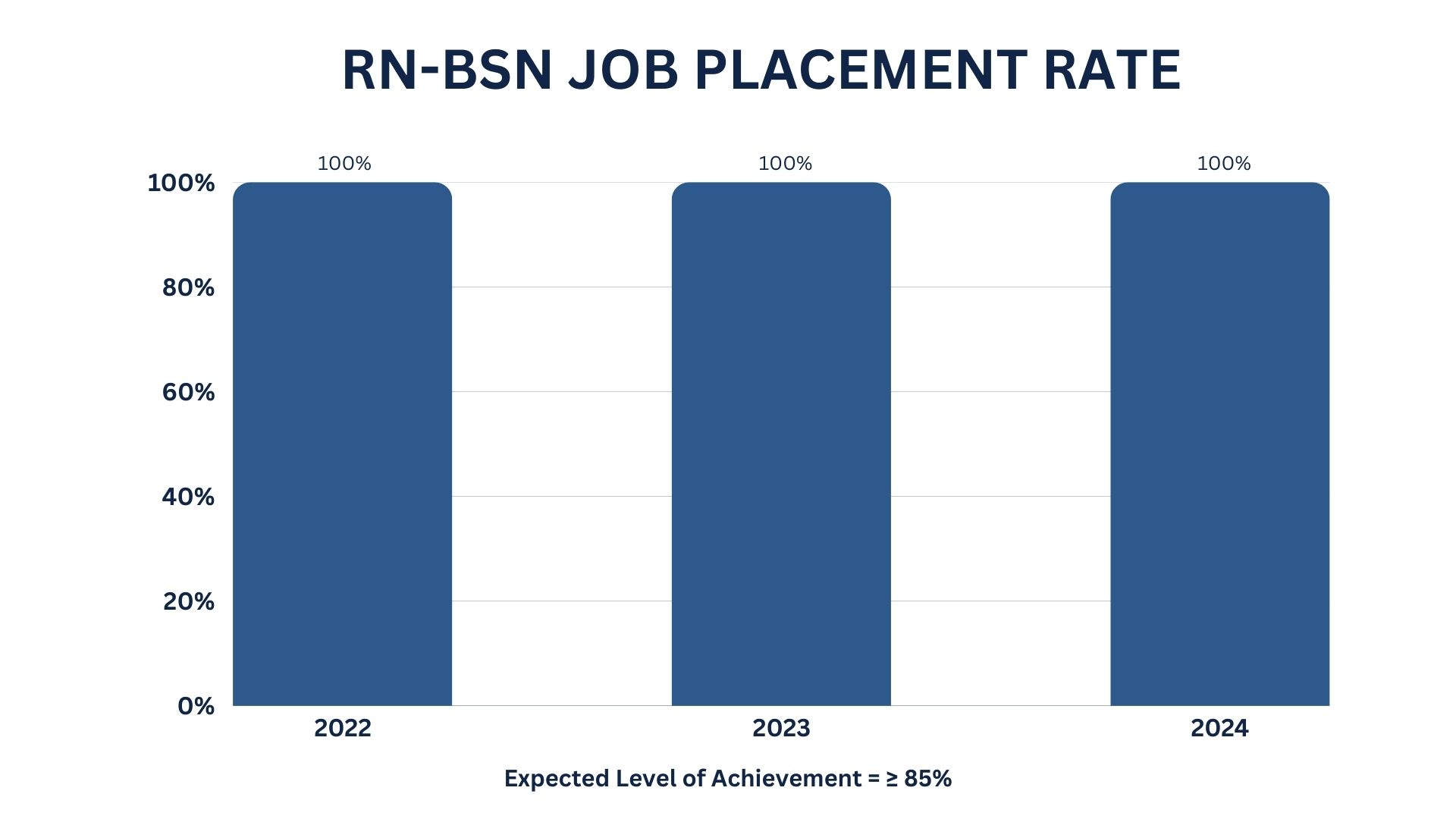Lincoln University School of Nursing RN - BSN Program

RN to BSN Program
Are you already an RN? Gain stability in an evolving industry. The American Nurses Association is pushing for nurses to return to the classroom and continue their education, noting the need to stay current with new practices and technologies. Whether you are a recent graduate or a seasoned nurse, the Lincoln University School of Nursing understands that at any stage in your career continuing your education takes a great deal of commitment.
The RN-BSN Program is an online program in nature, offering general education courses online, as well as on campus. Didactic BSN nursing courses are entirely online. Practicum courses are online and supervised by approved preceptors with oversight by BSN faculty.
This program is designed for associate degree and diploma registered nurses who wish to further their education. This program was initiated in 1992 in response to a request from the community and former associate degree graduates of Lincoln University. The RN-BSN program received initial National League of Nursing Accreditation (NLNAC) in 2004.
Lincoln University students in good standing and enrolled in the AAS nursing program may be eligible to apply for dual degree seeking status.

Lincoln’s AAS and BSN program options are accredited by the Accreditation Commission for Education in Nursing (ACEN) and are approved by the Missouri State Board of Nursing.
Accreditation Commission for Education in Nursing
3390 Peachtree Road NE, Suite 1400
Atlanta, GA 30326
RN-BSN Admission Criteria
Requirements for admission to Lincoln University and the RN-BSN program are specified in the Lincoln University Undergraduate Bulletin. In order to be admitted the applicant must:
- Be admitted to Lincoln University.
- Have a current RN license in good standing in the state where the practicum will be completed
- Complete the RN-BSN Application Form
- Have at least 60 hours of college credit and be eligible for junior standing. Courses must include the following:
Nursing
- Medical-surgical
- Obstetrics
- Pediatrics
- Mental health = 25 credit hours
*Non-Nursing
- English composition I and II = 6 credit hours
- Science: including anatomy & physiology, microbiology, & chemistry = 16 credit hours
- Sociology = 3 credit hours
- Psychology = 3 credit hours
- Mathematics = 3 credit hours
- Other (including 3 credits in history/government) = 8 credit hours
*Students who have not completed the specified non-nursing courses listed above may be admitted if they have accumulated 64 hours of college credit.
Students must plan their program of study to include any general education courses required for a bachelor's degree that they have not had as a part of their previous education. Transfer credits from other colleges and universities will be evaluated on an individual basis for equivalency to current program requirements.
Transcripts from diploma programs are also evaluated on an individual basis. The School of Nursing can grant up to 34 hours of lower division nursing credits for nursing courses taken through a diploma program. Additional college credits may be awarded for the sciences, social sciences, and humanities after transcript evaluation.
Students are expected to plan their program of study in conjunction with a RN-BSN program option advisor.
RN-BSN Program Objectives
Upon completion of the program, the graduate will be able to:
- Employ concepts from the arts and sciences to form the basis for clinical reasoning. (Essential I: Liberal Education for Baccalaureate Generalist Nursing Practice)
- Apply leadership concepts, skills, and decision making in the provision of high quality nursing care, health care team coordination, and the oversight and accountability for care delivery in a variety of settings. (Essential II: Basic Organizational and Systems Leadership for Quality Care and Patient Safety)
- Integrate evidence based practice (EBP) in planning, implementing, and evaluating outcomes of care. (Essential III: Scholarship for Evidence Based Practice)
- Demonstrate skills in using client/patient care and information technologies, information systems, and communication devices that support safe nursing practice. (Essential IV: Information Management and Application of Patient Care Technology)
- Demonstrate knowledge of healthcare policy, finance, and regulatory environments that influence healthcare trends. (Essential V: Health Care Policy, Finance, and Regulatory Environments)
- Apply effective communication techniques, including negotiation, collaboration, and conflict resolution to produce positive professional relationships. (Essential VI: Interprofessional Communication and Collaboration for Improving Patient Health Outcomes)
- Use clinical prevention and population focused nursing to improve health. (Essential VII: Clinical Prevention and Population Health)
- Demonstrate core nursing values to achieve optimal health outcomes by applying the professional standards of moral, ethical, and legal conduct. (Essential VIII: Professionalism and Professional Values)
- Demonstrate knowledge, skills, and attitudes necessary for practice as a member and leader of the interprofessional health care team. (Essential IX: Baccalaureate Generalist Nursing Practice)
Graduation Rate / Program Completion

Job Placement Rate

| First Semester | ||||
|---|---|---|---|---|
| Title | Abbreviation | Descriptions | Prerequisite | Credit Hour |
| Conepts of Prof. Nursing | NUR 310 | This course introduces the student to professional nursing practice, including the evolution of and theoretical basis for nursing. Special emphasis is placed on critical aspects of professional nursing practice and the future of health care. This course has 6 hours of theory/week per 8 week session. | Admission to the RN-BSN Program | 3 |
| Essentials of Health Assessment | NUR 322 | This course focuses on health assessment of adult clients. Emphasis is on health history and physical exam skill development. Health promotion, primary and secondary prevention strategies are incorporated into the assessment process. This course has 6 hours of theory per week for 8 weeks. | Admission to the RN-BSN Program | 3 |
| Living with Chemistry | CHM 103 | basic chemical principles course for non-majors, designed for general education and liberal studies students. | None | 3 |
| Elementary Statistics | MAT 117 | Descriptive and inferential statistics including frequency distributions, measures of central tendency and variation, probability and sampling distributions, tests of hypothesis, confidence intervals, linear correlation and regression. | MAT 111 | 3 |
| Fundamentals of Speech | SPT 206 | study of interpersonal and public communication theory and practice. This diverse course is designed to develop knowledge and skills in the processes effective to all communication in diverse contexts. | ENG 101 or 151H | 3 |
| Total Hours | 16 Hours | |||
| Second Semester | ||||
|---|---|---|---|---|
| Title | Abbreviation | Descriptions | Prerequisite | Credit Hour |
| Pathophysiology | NUR 350 | This course studies altered physiologic processes which result in health problems across the lifespan and require physiologic adaptive mechanisms. Students utilize critical thinking skills in analysis of selected health problems and application of the nursing process to clinical situations. This course has 6 hours of theory/week per 8 week session. |
NUR 104 | 3 |
| Intro to Nursing Research | NUR 360 | This course introduces the principles of research theory and methodology. Develops skills in critiquing nursing research and its application to practice. This course has 6 hours theory/week per 8 week session. |
NUR 310 | 3 |
| Death and Bereavement | NUR 335 | This course stimulates critical-thinking, explore feelings, and heighten self-awareness regarding death and grieving in various cultures. Content is holistic and deals with the physiologic, psychological, multicultural, spiritual, artistic and demographic aspects of death and bereavement across the lifespan. Emphasis will be on national and international aspects of thanatology. This course has 6 hours of theory/week per 8 week session. | ENG 101 & ENG 102 | 3 |
| American Cultural Diversity | S/A 200 | This course focuses on multidisciplinary approaches to understanding cultural variations and constructs, social interaction and change. A conceptual framework designed to emphasize ethnicity, identity, enclaves and socialization processes in a complex multicultural society is included. | 3 | |
| Total Hours | 12 Hours | |||
| Third Semester | ||||
|---|---|---|---|---|
| Title | Abbreviation | Descriptions | Prerequisite | Credit Hour |
| Leadership/Management in Nursing | NUR 420 | This course is the study of leadership and management principles with emphasis of organizational structures, economic and political trends, healthcare environments and workforce management. This course is designated writing intensive. This course has 6 hours of theory per 8 week session. |
NUR 360, 365 | 3 |
| Prof. Nursing Practice/Practicum | NUR 430 | This course is the application of professional nursing practice in the roles of the nurse with emphasis on leadership/management, professionalism, and evidence-based practice. This course has 3 hours of theory and 6 hours of practicum per week. |
5 | |
| Intro to Theatre | SPT 209 | 3 | ||
| Health Care Ethics | PHI 303 | 3 | ||
| Total Hours | 14 Hours | |||
| Fourth Semester | ||||
|---|---|---|---|---|
| Title | Abbreviation | Descriptions | Prerequisite | Credit Hour |
| Legal & Ethical Issues in Prof Nsg | NUR 460 | This course is a study of legal and ethical issues/events impacting professional nursing practice. Selected legal and ethical issues related to social, political and economic trends are discussed. This course has 6 hours of theory/week per 8 week session. |
NUR 360 | 3 |
| Community Health Nursing/Prac | NUR 470 | This course is the study and application of care for individuals, families, groups, communities, and populations. Emphasis is placed on health promotion and disease prevention. This course has 3 hours theory and 6 hours practicum per week. |
NUR 430 | 5 |
|
World Civilization I World Civilization II |
HIS 101 or HIS 102 | 3 | ||
| Upper Division Elective | PED 224 | 1 | ||
| Total Hours | 14 Hours | |||
| General Education Hours | 27 Hours | |||
|---|---|---|---|---|
| Nursing Hours | 32 Hours | |||
| Total Program Hours | 59 Hours | |||
$343.00/credit hour tuition for nursing courses
$263.00/credit hour tuition for non-nursing courses
$125.00/credit hour for NUR 100-399 courses (includes FLW)
$25.00/credit hour for NUR 400-499 courses (excludes FLW)
In addition to the tuition and fees the University charges, nursing students are assessed $125 per credit hour for each nursing course (as listed above). The non-nursing lab fees include $35 per course, $15 per credit hour technology fee and $55 online course fee.
Kaplan testing fees are assessed each semester. Students are required to provide transportation to and from campus and practicum/clinical experiences.
Additional requirements for practicum experience may be found in the Lincoln University Undergraduate bulletin, the RN-BSN student handbook, or the School of Nursing web area. Nursing students should anticipate incurring the following, additional expenses:
- textbooks
- uniforms
- stethoscope
- bandage scissors
- watch with second hand
- graduation fees
- drug testing
- federal and state background checks
Completed applications may be emailed to FLW@LincolnU.edu or mailed/hand-delivered to:
4904 Constitution Ave Bldg. 499
Fort Leonard Wood, MO 65473-8934
For your reference:
RN-BSN Advisement Worksheet (to be submitted by advisor)
